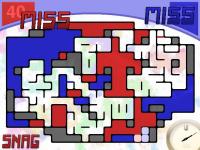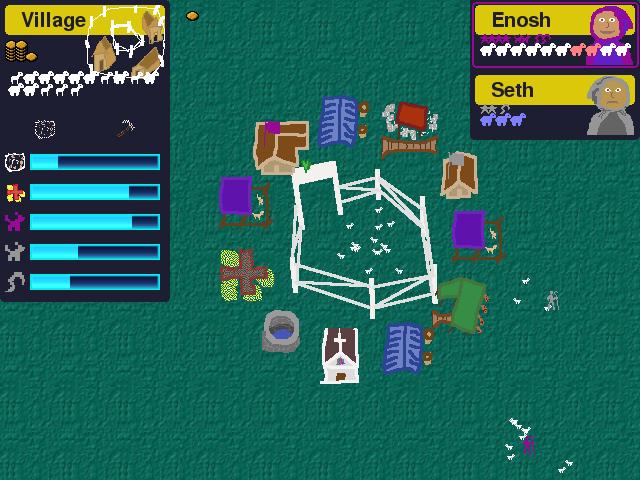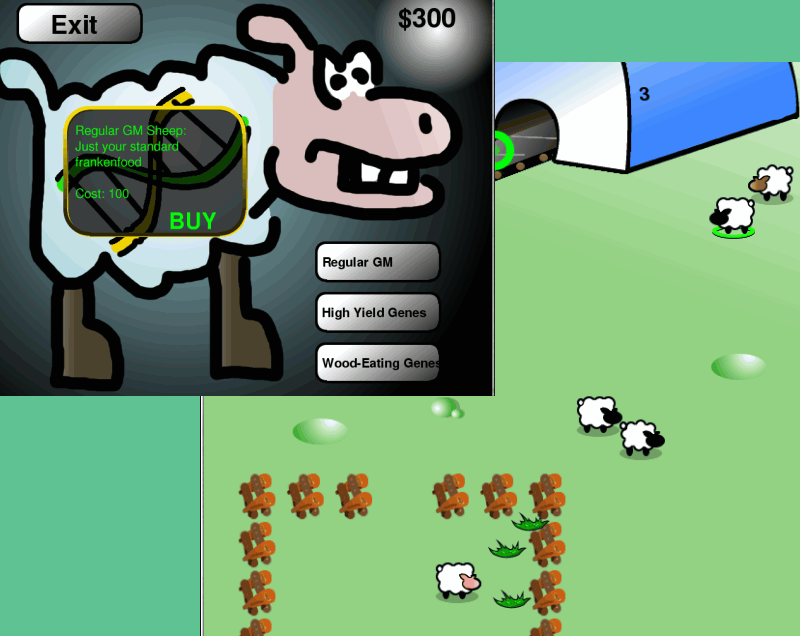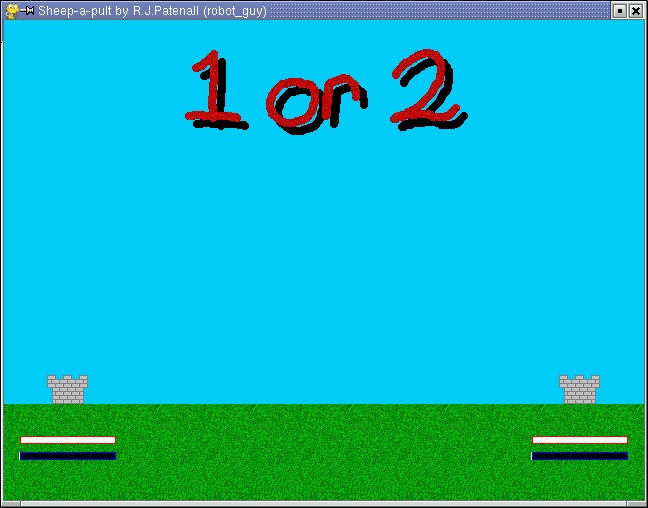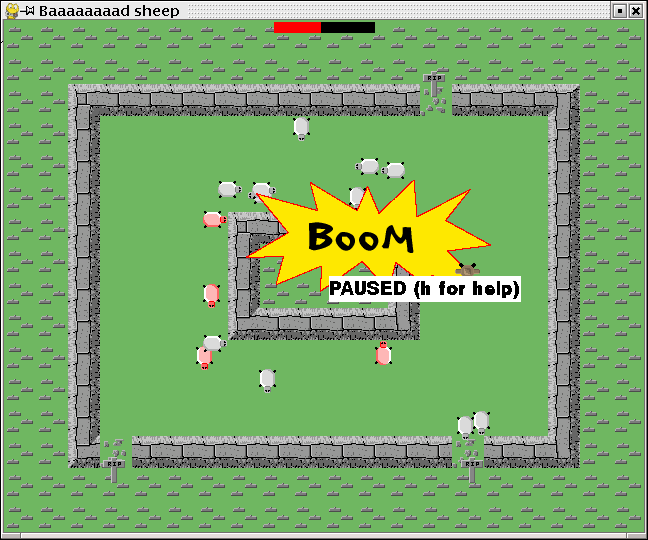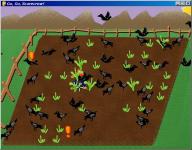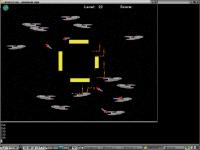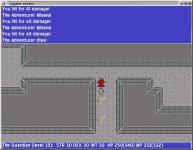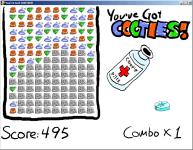
cooties_final.zip cooties_src.zip
|
You've Got COOTIES! (YGC) is a puzzle game with elements of Dr. Mario, samegame, and Bejeweled. The objective is to gain as many points as possible by clearing cooties from the game board, using cootie pills. If you slip up, the gray cooties will begin to take over the board, blocking your moves. When you have nowhere left to drop a pill, the game ends.
YGC is my first entry into a LD48 contest, and also my first completed pygame. I have to say that I'm extremely pleased with the entire LD48 experience, with Python and pygame, and with the way that YGC turned out. The graphics were all done in Paint Shop Pro 8 with a Wacom graphics tablet that I bought the night that the competition started, and the sounds were created with Audacity and a microphone.
I believe that Python+pygame is a brilliant platform for this kind of endeavor (which is not to say it isn't brilliant for normal development, too!) Even though I'm new to pygame, I spent no time at all wrestling with it. Everything worked according to the documentation. I spent the bulk of my time making graphics and tweaking the gameplay, which is exactly the way game development ought to be.
